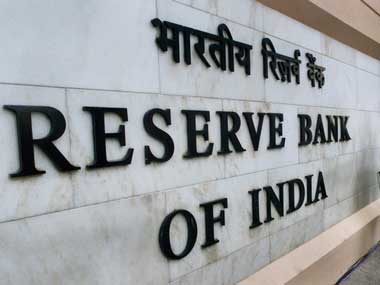Mumbai: The Reserve Bank of India (RBI) is likely to increase the repo rate by 25 basis points in the upcoming monetary policy review as inflation is expected to accelerate further due to higher crude prices and the weakness in rupee. The monetary policy committee will start its three-day meeting from 3 October to decide on the fourth bi-monthly monetary policy. After two successive hikes, the repo rate currently stands at 6.50 percent. “With petrol and diesel prices moving up, there is a strong expectation that inflation will also move up. So, they (RBI) may take a pre-emptive action. I feel there will be an increase of 25 basis points in the repo rate,” Union Bank of India managing director and chief executive Rajkiran Rai G said. Despite the rise in oil prices, the headline inflation number came down to 3.69 percent for August as against 4.17 percent for July. If the RBI increases repo rate by 25 basis points (bps), then it would be the third consecutive rate hike. Experts says the weaker trend in the rupee may also prompt the central bank to raise repo rate. “Given where currency level is at this point of time, I think they will increase the interest rate by quarter basis points,” HDFC vice chairman and chief executive Keki Mistry said. [caption id=“attachment_5129811” align=“alignleft” width=“380”]  Representational image. Reuters[/caption] Tracking global developments, the rupee has become weak and is hovering around 73 against the dollar. The SBI, in its research report, Ecowrap, said the RBI should raise the policy repo rate at least 25 basis points to arrest the rupee’s fall. “We rule out a hike of 50 basis points, as it may spook the market. However, there is a probability of change in neutral stance too, as three successive rate hikes with a neutral stance could contradict RBI message,” the research report said. Morgan Stanley in a report said it expects the RBI to hike the short-term rates at its October meeting. It said it remains bearish on the rupee despite the recent emerging market (EM) stabilisation as there are concerns about the recent default of a local financial institution, oil prices and a widening fiscal deficit persist. “The default has led to a rise in corporate spreads and increases the refinancing pressure on domestic financial institutions at a time when our economist expects the RBI to hike at its October meeting,” the Morgan Stanley report said. A Kotak Economic Research report said the MPC will likely increase the repo rate by 25 bps in the October policy based on the implied impact of expected cyclical recovery in growth, rupee depreciation, and crude price movement on the medium-term inflation trajectory. Bankers, however, do not expect the RBI to reduce cash reserve ratio (CRR), in the upcoming policy, despite liquidity condition remaining tight. “The RBI has taken a few measures to ease the liquidity condition. I don’t think they will reduce CRR,” said a senior treasury official of a state-run bank. After conducting two open market operations (OMOs), the apex bank Monday announced to conduct more such purchases to ease the liquidity condition in the banking system. Monday it announced a new OMO of Rs 36,000 crore. “Based on an assessment of the durable liquidity needs going forward and the seasonal growth in currency in circulation observed in build-up to the festive season, we have decided to conduct purchase of government securities under OMOs worth Rs 36,000 crore in October 2018,” the RBI said in a release Monday. The auctions would be conducted during the second, third and fourth week of October, it said.
The monetary policy committee will start its three-day meeting from 3 October to decide on the fourth bi-monthly monetary policy. After two successive hikes, the repo rate currently stands at 6.50 percent.
Advertisement
End of Article


)

)
)
)
)
)
)
)
)



